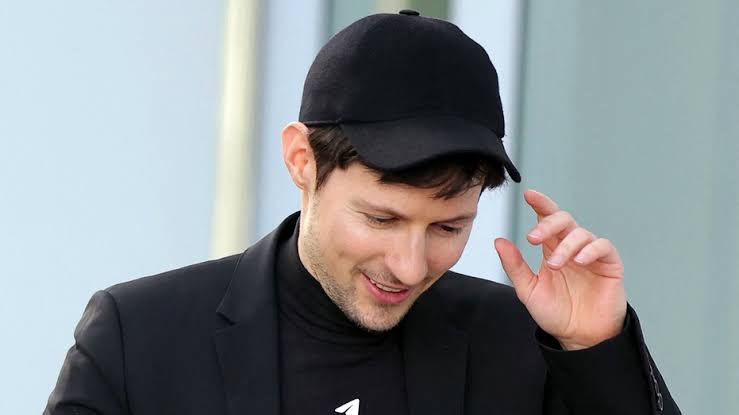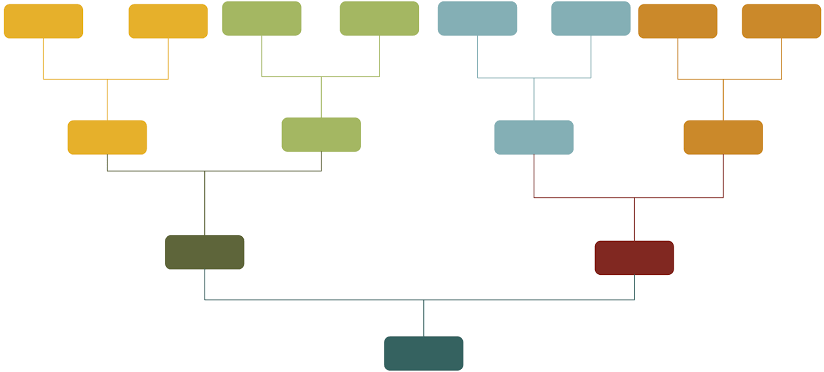When it comes to the tech elite, few figures are as enigmatic and intriguing as Pavel Durov, the founder of Telegram Messenger. Often dubbed the “Mark Zuckerberg of Russia,” Durov has cultivated a reputation not only for building one of the world’s most secure and privacyfocused messaging apps, but also for his libertarian ideals, minimalist lifestyle, and radical views on wealth and legacy.

In June 2025, Durov made global headlines for something that had nothing to do with software or politics. It was a revelation about his inheritance plan — and it was unlike anything the world had ever seen.
According to his publicly filed will, Pavel Durov plans to divide his estimated $13.9–$17 billion fortune equally among 106 children — six of whom are his biological offspring, and the rest conceived via sperm donations made over the past decade in 12 different countries.
This unprecedented move has sparked a tidal wave of debate across the tech, ethical, and legal communities. Let's dive deep into the background, implications, and the man behind one of the most unconventional inheritance strategies of our time.
🔹 Who is Pavel Durov?

To understand the logic—or philosophy—behind Durov's decision, it's important to know who he is.
Born: October 10, 1984, in Leningrad (now Saint Petersburg), Russia.
Known For:
-
Founding VKontakte (VK), Russia’s largest social network, in 2006
-
Launching Telegram Messenger in 2013
Estimated Net Worth (2025): $13.9–$17 billion
Citizenship: Stateless for many years, now reportedly a citizen of Saint Kitts and Nevis.
Lifestyle: Minimalist, often travels with just a backpack, maintains a strong privacy stance, avoids public appearances
Durov was ousted from VK in 2014 after refusing to hand over user data to Russian authorities. This incident cemented his image as a champion of privacy and digital freedom, and Telegram quickly became the messenger of choice for millions worldwide, especially in regions experiencing censorship.
🔹 The Inheritance Revelation: 106 Children?

In a legally notarized will revealed in June 2025, Durov outlined that his entire fortune is to be split equally among 106 heirs, identified as his children. This includes: 6 biological children (from known or acknowledged relationships) 100+ children born from sperm donations made anonymously or semianonymously in various fertility clinics around the world
🌍 Where Are the Children?
According to sources close to Durov, the children are scattered across at least 12 countries, including:
-
United States
-
Germany
-
Argentina
-
Japan
-
South Korea
-
South Africa
-
Canada
-
France
-
Brazil
-
Sweden
-
India
-
Australia
Each child is reportedly being tracked through legal intermediaries and anonymous donor ID systems. Some parents have reportedly received correspondence from legal representatives about the future rights of their children.
🔹 Why Do This? The Philosophy Behind It
Durov’s will is more than just an eccentric billionaire’s whim. It appears to be a carefully crafted philosophical experiment rooted in:
1. ProNatalism
Tech billionaires like Elon Musk and Bryan Johnson have expressed concern over declining birth rates. Durov's action seems to be a direct contribution to “seeding” future generations with his genetic material, ensuring his biological legacy spans continents.
> “The best legacy one can leave is not wealth, but potential. I choose to leave both.” – Pavel Durov (Reported quote from legal documents)
2. Merit Through Delay
None of the heirs will gain access to their share of the inheritance until June 19, 2055, or until each individual turns 30 years old, whichever is later. The will states this delay is meant to ensure personal development before sudden wealth could affect them.
3. AntiElitism and Fairness
Despite the vast differences in birth circumstances and geography, Durov’s will insists on equal shares among all heirs, regardless of biology, geography, or socioeconomic background.
🔹 Legal Complexities: Is This Even Possible?
Durov’s will, while idealistic, is legally complex. Some major challenges include:
🔸 Identification & Verification
Courts will have to verify the paternity of each donorconceived child — a mammoth task if privacy laws and clinic confidentiality agreements conflict with inheritance claims.
🔸 International Law
Inheritance laws vary drastically across jurisdictions. Enforcing a single will across 12+ countries will require:
-
Local legal representation
-
Cooperation from courts in multiple countries
-
Trusts and holding companies structured globally
🔸 Challenges From Other Parties
What if someone disputes the will? Or what if one of the donor children opts out or seeks a larger share?
Legal analysts say Durov likely used a multinational trust structure to safeguard against litigation and ensure compliance with international estate planning laws.
🔹 Cultural and Ethical Questions
This inheritance plan isn't just legally complicated — it also opens a Pandora’s box of ethical, cultural, and social questions.
🤔 Is This Eugenics in Disguise?
Some critics argue that this resembles a modernday form of selective breeding, echoing controversial ideas tied to eugenics, even if the intent is voluntary and altruistic.
👨👧 Does This Exploit Fertility Systems?
Others point out that largescale sperm donation for legacybuilding could exploit women and fertility systems, especially in underregulated countries.
💵 Can You Inherit Without Knowing Your Father?
What does it mean to inherit from someone you’ve never met or known was your biological father? How will this affect identity, family structure, and relationships among the children?
🔹 What Happens in 2055?
If the plan holds, each of the 106 children will receive roughly $130–$160 million, assuming a conservative appreciation of Durov’s assets over the next 30 years.
Some of the expected provisions include:
-
Access via secure biometric identity confirmation.
-
Optional education or development grants available from 2035 onwards.
-
A virtual “family forum” platform, possibly hosted via Telegram or its future iterations, to allow heirs to connect and collaborate
🔹 How Does Telegram Fit Into All of This?
Telegram, the centerpiece of Durov’s tech empire, plays a unique role in this story.
-
Privately owned, with no advertising and no data monetization.
-
Durov has consistently refused to sell or list Telegram on public markets.
-
Telegram may be part of a longterm trust, with shares transferred to a holding entity managed until the heirs reach maturity
This raises the possibility that Telegram itself could one day become a legacymanaged platform, owned and overseen by a council of heirs — a kind of digital dynasty.
🔹 Reactions from the Public and Media
Media reactions have ranged from awe to satire. Headlines like:
“The Billionaire Who Fathered a Digital Nation”
“Pavel Durov's $17B Baby Boom”
“Telegram’s Founder Just Created the World’s Richest Family Tree”
Social media has been abuzz with memes, praise, criticism, and philosophical debates about wealth, legacy, and the meaning of fatherhood in the 21st century.
🔹 Final Thoughts: A Legacy Beyond Code
Pavel Durov has never been one to follow convention. From refusing government censorship, to creating a platform for privacyconscious users, to traveling the world with a single bag — he’s always done things differently.
Now, with his plan to divide his multibilliondollar fortune among 106 children, he’s rewritten the rules of inheritance.
Whether seen as a visionary move or a misguided experiment, Durov’s inheritance plan will shape legal, cultural, and ethical conversations for decades.
Only time will tell how his heirs — scattered across the globe, connected by DNA and destiny — will carry forward the legacy of a man who built an empire on the belief that information, like wealth, should be free and decentralized.

You must be logged in to post a comment.